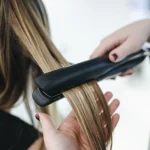Maintaining healthy and happy Afro hair can be both a rewarding and empowering journey. For beginners, understanding the unique needs of Afro-textured hair is crucial. Here’s a comprehensive guide that covers the basics and provides valuable insights to help you care for your beautiful curls.
Embrace Moisture
Afro-textured hair tends to be drier than other hair types, making moisture a top priority. As Dr. Yolanda Walker, a board-certified dermatologist and trichologist, emphasizes, “Moisture is key for healthy Afro-textured hair. Invest in a good leave-in conditioner and deep condition regularly to prevent dryness and breakage” Zocdoc.
Tips for Keeping Your Hair Moisturized
- Use Leave-In Conditioners: These are formulated to stay in your hair and provide continuous moisture throughout the day.
- Deep Conditioning: Make it a habit to deep condition your hair weekly to restore and maintain moisture balance.
- Water and Oils: Spray your hair with water daily and seal in the moisture with natural oils like coconut oil or shea butter.
Gentle Detangling
Detangling Afro hair can be a delicate process. Celebrity hairstylist Yeneva Bradley, known for working with Lupita Nyong’o, advises, “Detangling is crucial for Afro hair. Use a wide-tooth comb and detangle on wet hair with conditioner to minimize breakage” (Interview with Essence Magazine).
Steps to Effective Detangling
- Start with Wet Hair: Apply conditioner and let it sit for a few minutes.
- Use a Wide-Tooth Comb: This helps reduce breakage by gently working through knots.
- Section Your Hair: Work in small sections to ensure each strand is detangled properly.
Prioritize Scalp Health
Healthy hair starts with a healthy scalp. As CurlyNikki, the founder of the blog CurlyNikki.com, points out, “Scalp health is the foundation of healthy hair. Use gentle shampoos and avoid harsh chemicals that can strip your scalp of natural oils.”
Scalp Care Routine
- Gentle Shampoos: Choose sulfate-free shampoos that cleanse without stripping natural oils.
- Regular Scalp Massages: This stimulates blood flow and promotes healthy hair growth.
- Avoiding Harsh Chemicals: Stay away from products with harsh chemicals that can irritate your scalp.
Protective Styling
Protective styles like braids, twists, and bantu knots can help minimize manipulation and retain moisture. Hairstylist Kim Kimble, who has styled Beyoncé, explains, “Protective styles can be a great way to retain moisture and minimize manipulation on your Afro hair” (Interview with Elle Magazine).
Benefits of Protective Styles
- Reduces Breakage: Less handling means less breakage.
- Retains Moisture: Styles like braids and twists help keep your hair moisturized.
- Versatile and Stylish: Experiment with different protective styles to find what suits you best.
Nutritional Support
Your diet significantly affects your hair health. Nutritionist Cassie Shortsleeve stresses, “Diet plays a role in hair health. Ensure you’re getting enough essential nutrients like protein, iron, and biotin to promote healthy hair growth” Eatright.org.
Essential Nutrients for Hair Health
- Protein: Strengthens hair and promotes growth.
- Iron: Essential for hair growth and preventing hair loss.
- Biotin: Supports hair health and growth.
Celebrate Your Natural Texture
Embracing your natural texture is crucial. YouTuber Lorraine from Natural Hair Care with Lorraine encourages, “Embrace your natural texture! Afro hair is beautiful in its many forms. Experiment with different styles and find what makes you feel confident” (NaturalHairCare with Lorraine).
Research Insights
Several studies highlight the importance of proper hair care techniques for Afro-textured hair:
- Moisturizing Regimens: The Journal of Cosmetic Science reports that leave-in conditioners and deep conditioning significantly improve hair health in Afro-textured hair.
- Detangling Practices: Research in the International Journal of Trichology shows that using the right detangling tools and techniques can reduce breakage rates.
- Scalp Care: The Journal of Drugs in Dermatology emphasizes the link between scalp health practices and improved hair growth.
- Nutritional Deficiencies: The Archives of Dermatology explores how dietary deficiencies can lead to hair loss in women with Afro-textured hair.
Conclusion
Caring for Afro-textured hair involves a combination of moisturizing, gentle detangling, scalp care, protective styling, and a nutritious diet. Embrace your natural beauty and experiment with styles that make you feel confident. Remember, healthy and happy hair is a journey, and with the right care, your curls can thrive.




